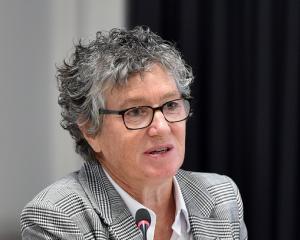Sean Davison (50), a microbiologist, faced trial in the High Court last month for attempted murder.
But at the end of the Crown case, he pleaded guilty to an amended charge alleging he "incited and procured" Patricia Elizabeth Davison (85) to commit suicide on October 24, 2006.
That charge was itself changed yesterday, the word "incited" being replaced with "counselled" because the word "incited" carried "unfair pejorative connotations".
Davison pleaded guilty to the amended charge, was convicted and sentenced to five months' home detention - the term to be served in Dunedin.
Speaking to media afterwards, he said he did not regret his actions and did not believe he was a criminal.
"I wasn't thinking about the law. I was thinking about the comfort of my mother. I would never do it again, but I don't regret what I did," he said.
He hoped his trial would lead to a change in society's rules that found him a criminal for an act of compassion.
"This trial was not about justice but about getting a conviction. I wish the law was more concerned about protecting the rights of the sufferers, such as the people like my mother who want to choose their time and manner of death.
"I believe the present law has been exposed in my trial and it stands guilty in the name of justice and humanity."
Davison's lawyer, Roger Laybourn, was "relieved and satisfied" his client was not going behind bars.
As a lawyer, he said he was "realistic" about the judge's sentence and "not surprised".
However, reaction from Davison's supporters was mixed.
Dunedin Exit International convener Paula Westoby believed the judge could have been more lenient.
"I'm disgusted. He should be at home with his kids in South Africa. That's a terrible law.
"Dunedin people should be up in arms and marching up the streets about this."
Supporter and family friend Susanna Quinger said the judge could not let him go - even though it was what his supporters wanted.
"I can see the judge is in a bind ... It's a difficult topic, but it's a discussion society needs to have. It should be possible for people to die with dignity."
Davison was charged last year, 15 months after publication of a book detailing the last few months of his terminally illmother's life and how, at her request, he gave her crushed morphine tablets in a glass of water.
Mr Laybourn told Justice Christine French that, while the guiding principle for the court was the sanctity of life and the obligation to protect the weak and vulnerable, the reality was - "tragic as it was, this man was in a real dilemma".
Davison's mother was absolutely determined "this would happen", that her son would comply with her wishes and end her life with a morphine overdose. Although physically weak and close to death, Dr Davison was not vulnerable in terms of willpower, Mr Laybourn said.
He asked that Davison be allowed to return to South Africa without a conviction to continue his work in the identification of degraded DNA to assist the South African police identify and prosecute offenders from the apartheid era. Davison was also involved with the Innocence Project and his DNA work had helped in the exoneration of wrongly convicted people.
Robin Bates said the Crown accepted Davison acted out of love and compassion and not for any personal gain, that his mother had been on a hunger strike, had asked to die and had also asked others to assist her.
Because there had been no postmortem examination, it was not possible to say if Dr Davison died from a morphine overdose or not.
Contrary to what was stated in a television programme after the guilty plea, Davison's mother was not in intense pain in the last days of her life, Mr Bates said.
Davison had obtained a morphine pump for her - that may have been to cover up the administration of the morphine - and it was reasonable to assume he assisted his mother to take the morphine.
Justice French told Davison the court had to impose a sentence which held him accountable, denounced his actions and provided a deterrent to others.
The seriousness of the offence was indicated by the maximum penalty - 14 years' jail, but she took the view the offending was at the lower end of the scale and Davison had acted out of compassion.
Had she sent him to jail, the term would have been 13 to 14 months. But in the circumstances, home detention, to be served in Dunedin, was the appropriate penalty, she said.












